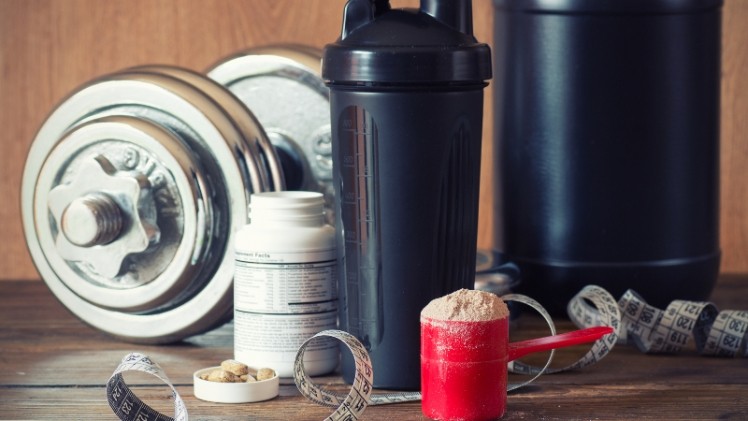‘Gold standard’: Whey protein supplementation maximises muscle gains from resistance exercise – Maeil-funded RCT

Professional athletes and people who enjoy physical activities tend to consume a variety of supplements, particularly protein supplements, to boost performance.
Many studies have investigated the effect of whey protein supplement intake on muscle mass and strength in combination with resistance exercise, but the results have been conflicting. Furthermore, few studies have examined the impact of whey protein supplementation under dietary control.
A randomised, double-blinded and placebo-controlled trial was conducted by researchers at Pusan National University in Busan, South Korea, sought to address this gap in information.
The study was funded by Maeil Health Nutrition Co. Ltd, a leading functional nutrition company in the country.
Thirty-two men in their 20s to 30s and with standard Korean body sizes (height of 174 ± 5 cm and weight of 74 ± 4 kg) were recruited. They were randomly assigned to a whey protein supplement-intake group (PSG) and a placebo-intake group (CON).
For three times day (morning, post-exercise and evening), the PSG took a pack of whey protein powder supplement comprising 20g of whey protein isolate, 8g of carbohydrate and 6.4g of dietary fibre, while the CON consumed a pack of placebo containing 25g of carbohydrate.
All powders were formulated by Maeil Health Nutrition, flavoured with chocolate to mask their contents, and given in unlabeled packaging. Each pack had the same calorie content of 99 kcal.
The participants were provided with three meals a day throughout the four weeks of intervention. For each individual, the nutritional and calorie content of their meals corresponded to their estimated daily energy intake, which was calculated by multiplying their resting metabolic rate by activity factor.
Both groups underwent a supervised resistance exercise programme that lasted for 60 minutes per day, six days per week during the duration of the study.
Their body composition and isokinetic muscular function were measured before and after the intervention.
The findings showed that both groups had significant decreases in body weight and body fat percentage. Specifically, body fat mass fell by approximately 20% in the PSG and 12% in the CON.
On the other hand, the PSG showed a marked increase in muscle mass to 32.48 (± 2.43 kg), while the CON did not.
In terms of muscular strength, the PSG showed significantly increased strength of both the dominant and non-dominant knees and shoulders, compared to the CON.
“To the best of our knowledge, this study is the first that involved direct dietary control. Our findings suggested that whey protein supplementation could enhance resistance exercise-induced improvement in muscle mass as well as overall muscular strength, independent of dietary influence,” said the authors.
Enhanced muscle endurance
Among dietary supplements, carbohydrate supplementation is the main source of energy for muscle contraction, whereas amino acid supplementation not only provides energy, but also aids in muscle protein synthesis and muscle recovery.
“Whey protein is considered the gold standard of protein supplements because it contains a higher essential amino acid content than other protein supplements. In addition, the amino acid component of whey protein has a pattern similar to that of human skeletal muscle amino acids, and is thus absorbed faster than other protein sources,” the authors explained.
In this study, exercises related to knee joint muscular function were squats, lunges and leg presses. Lower-body exercises typically train knee joint extensors and help to elevate muscular endurance.
The PSG showed significantly increased muscular endurance of the dominant extensors in the knee and shoulder, while that of the CON did not change. Trunk endurance was also raised in the PSG.
“These findings underlined that whey protein supplementation may also have additional benefits for the development of upper- and lower-body muscular endurance by maximising the positive effects of resistance exercise. It is believed that the impact of protein supplementation was revealed more clearly with the direct control of diet,” the authors concluded.
Source: Nutrients
https://doi.org/10.3390/nu15041003
“Effects of Whey Protein Supplement on 4-Week Resistance Exercise-Induced Improvements in Muscle Mass and Isokinetic Muscular Function under Dietary Control”
Authors: Chae-Been Kim, et al






















